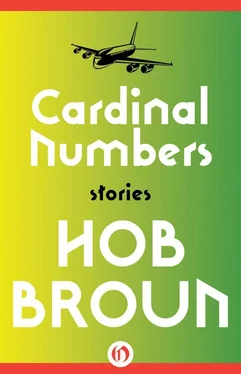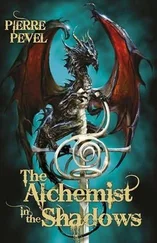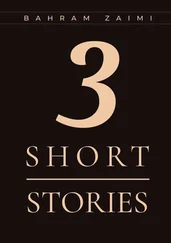IN September, with no more afternoon lectures to pretend, Olivia announced her enrollment in an evening sculpture class.
“I need to broaden myself,” she said to Aunt Catherine. “Don’t you agree?”
“Let me find you a private instructor.”
“But this way I can be with other girls.”
“Your father has placed you in my care, Olivia. I appreciate that trust, and so should you.”
“But I’m fine, really I am.”
“Let me suggest …”
“And I’ve had my twenty-first birthday.”
Olivia finally was able to dine where before she had only had lunch. The lavish interiors came to life. The colonnades and satin hangings, the gilt panels depicting imperial Rome, the crystal chandeliers and polished oak made more than a background; they dictated terms, defined possibility. These things were meant to stimulate, rather than intimidate. It was an open field, instead of an enclosure. You did not have to choose your words; shyness was unnecessary. The audience had reached the stage and it was playtime.
She watched Kreutzer, the nickel king, swallow two dozen oysters from a beer stein while a Florodora Girl tickled his ear; she found out that Lady Eve Sidwich used lemon juice to make her hair blond, and the one was no more enlarged at this rate than the other was diminished.
“The human scale,” Chase said, “can be played on a piano.”
She learned to distinguish timbales from croustades, palmettes from mousselines on the hors d’oeuvre cart, and how to joke with Swiss waiters.
Chase said: “You see? There’s nothing to it.”
She saw boxers and magnates together, tunesmiths, philanthropists, ward heelers, dowagers, acrobats, rug dealers, French farce ingenues with their white arms bared — and the columnist Chase, collector of tidbits, knew all their names.
“I wish I were a painter,” Olivia said.
“No, no. The photograph is here. Oils and canvas are obsolete.”
She tasted sorrel bisque and terrapin steak and pheasant breast, all for the first time. Between each course there came sherbet in white, or in mint or berry pink. And overhead, across a ceiling painted as the deep blue Eastern sky, electric stars were twinkling.
Aunt Catherine Howe had been waiting for at least an hour. Her mouth was tense and white at the corners.
“A friend has reached me by telephone. I know where you have been.”
Olivia groped, fell back on the sofa.
“No more lies,” hissed her aunt.
Coal was banked in the grate, and the room suffused with gaseous orange light.
“I’ve done nothing ignoble.” Olivia opened her hands. “Nothing malicious.”
“It isn’t the doing but the seeming.” Aunt Catherine turned her back. “And your indecency is plain.”
“But it’s friendship. The best sort of friendship, really. He only wants to guide me. To show me how things work.”
“All the time I spent on your instruction, and you haven’t understood a thing. We share that blame together, I suppose.”
The room was too warm, too closed. And Catherine, who in her angular and calculated way had once seemed beautiful, now was an outgrowth of shadows.
“You’ll have to go back north, of course,” she said. “But why?”
“Because as anyone can see, my dear, it’s just where you belong.”
IN her dream, the parlor on Seneca Street was lined with purple velvet, and the lamp wicks were turned up all the way. The table was set for a supper party, and the guests all were millionaire dogs.
The elkhound said, “The pictures are more degrading than the dime novel because they represent real flesh and impart their low morality directly to the senses.”
The schnauzer puffed his cigar. “All these nickelodeon merchants are Jews.”
The “Mother” character, in fact wearing someone else’s face, counted out pickles.
It did not seem important to know what the weather outside was like. The falls would still be making electricity and the parlor on West Seneca would go on smelling of kerosene.
Their guests were not up to part singing. And when they caught on to the fruit pyramid, that it was made of wax, they turned ugly.
Her dream was a globe, and revolving inside it, in black type on Western Union yellow tape, was a headline: LIFE AS PREY.
Olivia woke gradually, in stages. She folded one ear over, feeling its cold edge. She recognized dawn without opening her eyes. “Paling in the east” came so insistently into her head, like ticking, that she had to get up and get away.
She found Delia with her head tipped back against the pantry door, the sash of her wool plaid wrapper loose and brushing the floor. Delia said she couldn’t sleep for worrying about Rose and this boy she had fallen for head over heels. A boy from the docks, a scoundrel. She watched Delia rinse the pot with hot water and then put into it three measures of black tea from the square tin. She watched the stream from the kettle, and steam rebounding out the mouth of the white pot. Fine cracks in the glaze made it like the rolled shell of a hard-boiled egg. The neck and the base of the pot were edged in blue. The handle curved nicely. Delia said that at home in the hard times they boiled burnt crusts. She took down cups and Delia poured. The cream was just on the turn; it spread out in tiny ropes. Delia drizzled treacle off a thin souvenir spoon.
She said: “My father needs me to come back. He can’t seem to get by on his own.”
Delia blew across her cup. Light had come up to the window, and there was fog.
She said: “It would be wrong to look on it as duty.”
In the beading of the sideboard edge were hardened drops of varnish.
And she said: “The ties that bind.”
DUMAS WAS FOND OF the Great Northwest, white mist and dark coniferous trees. He said it reminded him of the Apennines, where in fact he had never been. Lady Elaine cautioned him on his driving.
“If we die, we die together.”
“That sounds lovely,” she said. “But I’d like to be able to sit straight through the corners.”
Looking at him in his coconut straw hat, the black preacher suit he said could go ten thousand miles without showing dirt, she thought: I’ll never leave, even if my heart would change.
When he pulled in at a stand selling myrtlewood salad bowls, it was to offer the kid advice on how to improve his attraction. She disliked little Dumas habits (fancy jokes, too much pomade on his hair), but what she liked about him had size: that he was fair, never overused an advantage, didn’t feed on contempt for suckers and rubes. He was a gentleman. He could charm a bird right out of its cage, as she must have told him a thousand times.
They drove on with the windows open wide, and Lady Elaine with her head on his shoulder.
“What I fell in love with the very first minute was how you could waltz.”
“You were a feather in my arms,” said Dumas the gentleman, author of Torture & Catholicism, Dispersion of the Races, and Babyface Nelson, The Intimate Story, animal impressionist on barnyard novelty records by the Jelly Roll Morton band, impresario of indoor bicycle races in Newark, beef-eating contests in Houston, manager of beauty queens, importer of tropical birds.
At the Endicott Lunch outside Roseburg, they took a booth midway between the entrance and the kitchen. Dumas ate his ham and white beans quickly, without looking up. Lady Elaine, slightly carsick, had tea. Two whores came in looking for men from the pulp mill. They wore tight dresses, open-toed shoes, and appeared to need sleep.
“Ah, les nymphes du pavé” said Dumas warmly, and invited them to sit down.
Lady Elaine felt her clothes, and what was underneath them, being closely appraised.
Читать дальше












